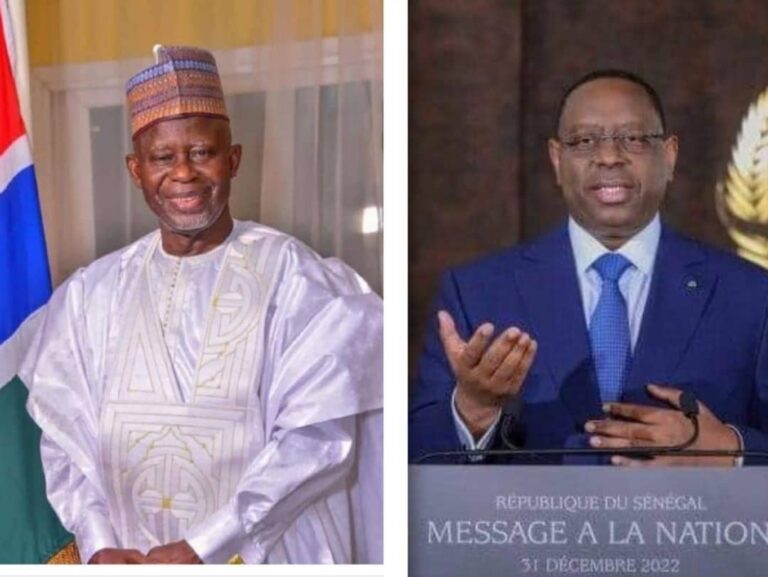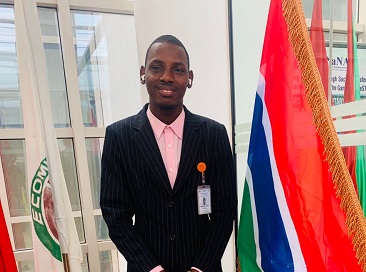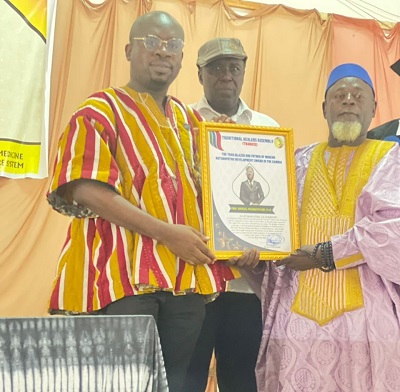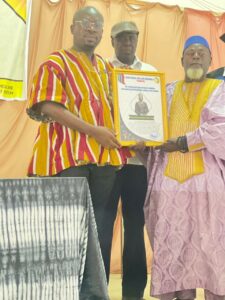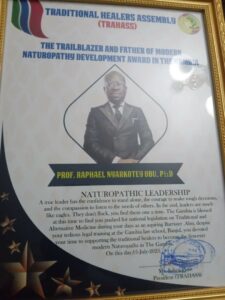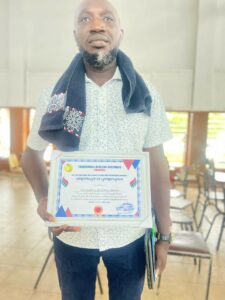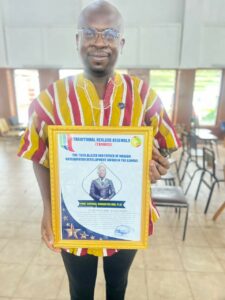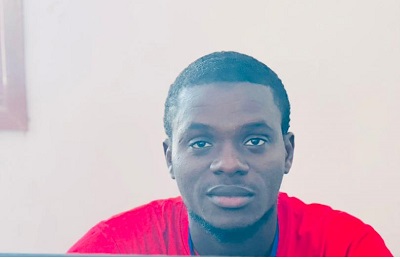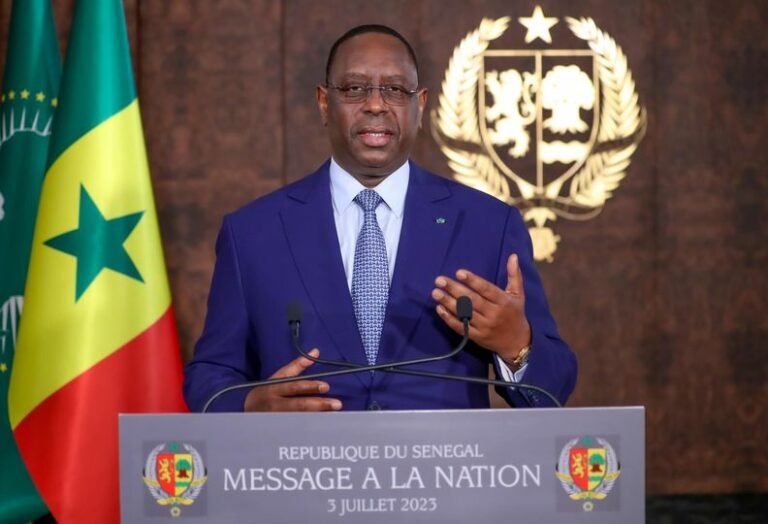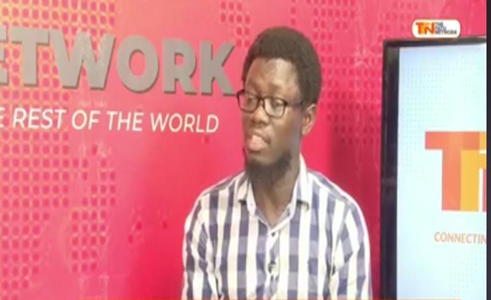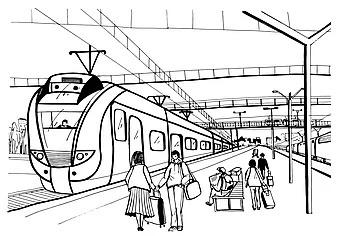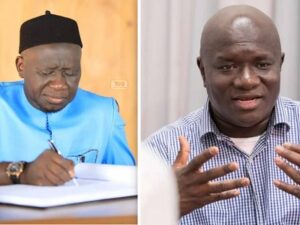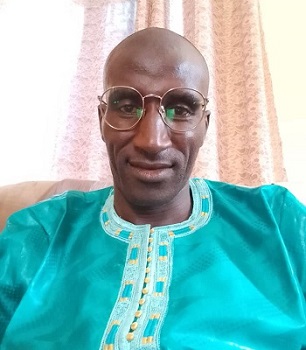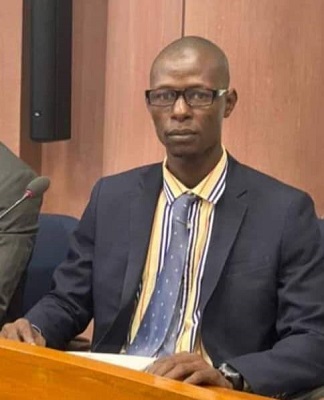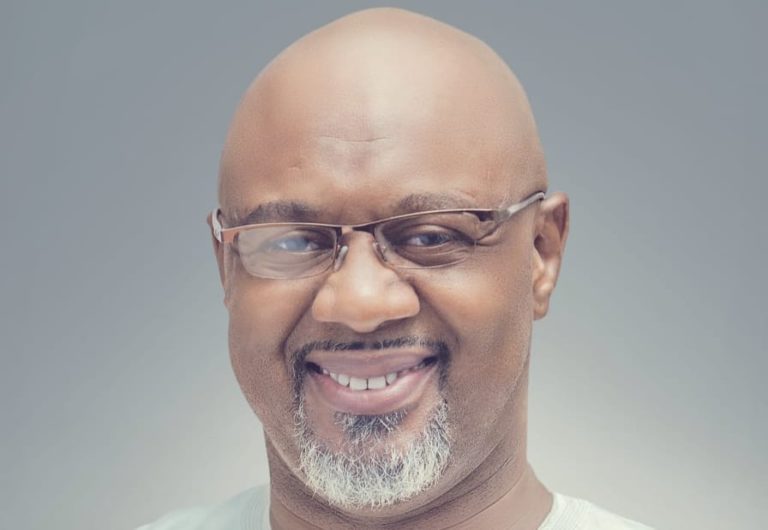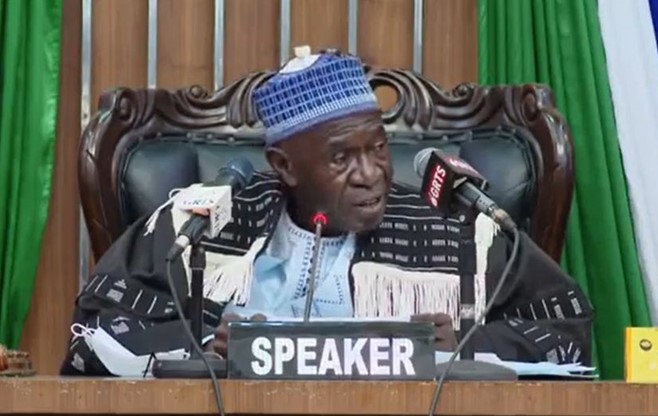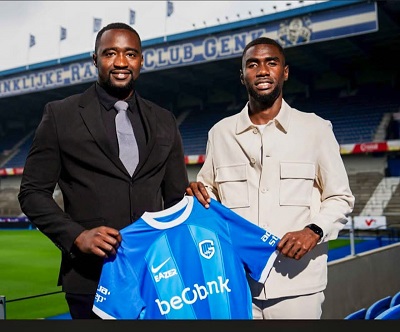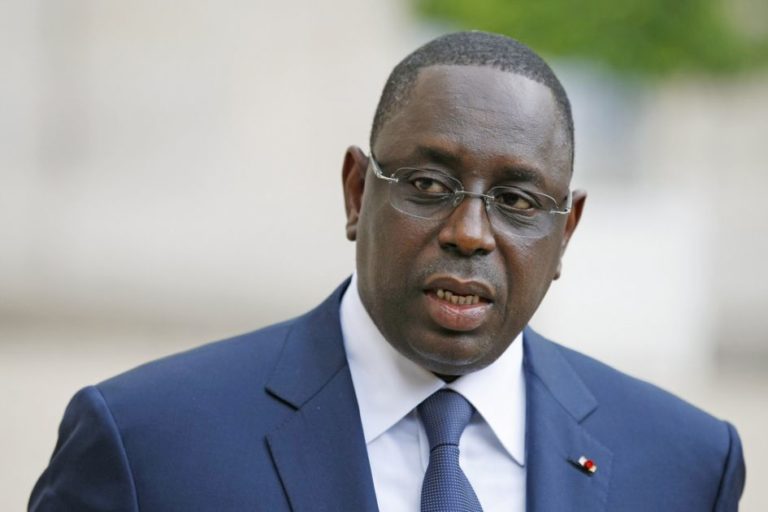Alhagie M. Dumbuya
Director of Research and Library Services
National Assembly of The Gambia
Email: [email protected]
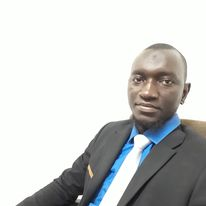
Overview
Constituency Development Fund (CDF) is a political development tool that is increasingly gaining popularity among parliaments and parliamentarians worldwide, more so in developing countries. The Gambia could be considered among the latest countries to adopt a CDF approach to development when the budget for it was approved by the National Assembly in 2021.
CDF is considered an arrangement that allows a Member of Parliament (MP) to facilitate the spending of funds dedicated and directly earmarked for development project(s) in his or her constituency. In other words, CDF is a mechanism that gives MPs a degree of authority to identify and implement projects in their constituencies. The ‘good’ intent is to provide, through parliament, initiatives that would address inequalities in terms of developments around the country. For some countries, the MP plays the lead role of presiding over constituency opinions on what, where and how the fund is spent or will be spent.
Over the years, arguments have emerged from among the public both for and against the execution of CDF by MPs. The proponents for CDF pointed out some of the benefits of the initiative, noting that it brings about direct visibility of the MP through the projects implemented in the constituency. Those against the approach argued that the implementation of projects is exclusively reserved for the Executive. They posited that parliament is the supreme audit institution which alone has the mandate to approve the spending of national resources and ensure that such resources are effectively accounted for by implementing institutions. For this reason, parliament cannot be a referee and a player at the same time. In other words, parliament cannot be an audit institution of how national resources are spent, at the same allowing Parliamentarians themselves to become spending officers of that resource. The question that might arise would be, who shall hold Parliament accountable?
To the proponents of this latter argument, Parliament would be deviating from its traditional mandate of legislation, oversight/scrutiny and representation as in the case of an auditor becoming an accountant. As such, this will dilute Parliament’s position to effectively monitor and scrutinize projects that it has itself implemented.
CDF in The Gambia
It may be argued that the ultimate objective of CDF is to eliminate poverty at grassroots the level and bridge the gap of development imbalances across the various regions of the country through the projects and programmes implemented under the initiative. It is against this understanding and craving desire that, in 2021, The Gambia joined the list of countries that adopted CDF as the National Assembly appropriated sixteen million two hundred thousand dalasis (D16,200,000) for use by parliamentarians on development projects in their constituencies. Each of the fifty-three (53) elected National Assembly Members (NAMs) was allocated the sum of three hundred thousand dalasis (D300,000) for that purpose. In 2023, CDF allocation was increased to twenty-nine million dalasis (29,000,000) cumulatively to include both elected and nominated NAMs, thereby allocating each five hundred thousand dalasis (D500,000).
By virtue of his role as Chief Executive Officer, the Clerk of the National Assembly is the accounting officer and vote controller of CDF. There is no law yet on CDF in the country. However, the National Assembly Authority, through the Office of the Clerk, developed a CDF Policy to guide the disbursement and implementation process of the fund. The onus lies with the Authority, through the Office of the Clerk, to ensure that before funds are disbursed, the requests and proposals submitted by NAMs fulfil procurement rules and requirements. All procurements of goods and services are made by the Office of the Clerk. No NAM handles the CDF in cash. They only implement what has been procured, and this procurement is strictly done in line with their submitted proposals and The Gambia Public Procurement Act.
The CDF policy constitutes a CDF Committee and CDF Contracts Committee. The National Assembly Authority serves as the CDF Committee while the Contracts Committee of the National Assembly also serves as the CDF Contracts Committee. The CDF Committee considers and approves project proposals submitted by NAMs as well as addresses complaints of disbursement and management or other matters relating to the fund. The Contracts Committee considers all procurements relating to CDF and ensures that contracts are awarded to the most responsive bidders/suppliers.
Furthermore, the policy establishes a Monitoring and Evaluation Team with the mandate of conducting field visits at least quarterly to verify the implementation of projects at the Constituency level by NAMs and report back to the CDF Committee. To ensure accountability, the policy further tasks the Office of the Clerk to submit to the CDF Committee a quarterly summary report of project proposals received and approved or otherwise, status of disbursements of funds, and implementation status of projects for which monies have been disbursed.
CDF in Other Jurisdictions
In most jurisdictions where CDF is being implemented there is a law usually an Act of Parliament to guide the process. In Zambia for instance, CDF was originally introduced in 1995. The Constituency Development Fund Act, 2018 established under the Zambian Constitution provides for the management, disbursement, utilisation and accountability of the CDF. The Act establishes CDF Committees in constituencies and their composition reflects a cross-section of the MP, councilors and civil society.
Kenya first introduced CDF in 2003. The recent law that the country has on CDF is the Constituencies Development Fund Act, 2013 which makes it mandatory for the provision of at least 2.5% of all the national government ordinary revenue collected in every financial year to the Fund. The Act equally establishes a CDF Board with a Chief Executive Officer as well as a CDF Committee for every constituency.
Also, Zambian CDF is managed by local councils through special constituency accounts opened for this purpose, contrary to what obtains in The Gambia. Under Zambian law, the CDF does not only comprise monies appropriated by Parliament but also grants, fees, council contributions or donations received for purposes of the Fund whereas in The Gambia, monies earmarked for CDF are only those appropriated by the National Assembly from the national budget.
Moreover, in Kenya, 75% (three quarters) of the money allocated as CDF in a single year is divided equally among the constituencies, and the other 25% (one quarter) is allocated based on the poverty ranking of constituencies using a formula which ensures that poorer constituencies get more money. Similarly, in Tanzania, the Constituencies Development Catalyst Fund Act, 2015, makes it mandatory to allocate 25% equally to each constituency, and 75% to be allocated in such manner as 45% in relation to the population of people living in a constituency; 20% in relation to the poverty margin; and 10% in relation to the size of the geographical area of a constituency. In Nigeria, CDF has been initiated through a government policy since 1999. The fund is divided on a 60:40 ratio between the House of Representatives and the Senate respectively (Busari, 2018).
Without a doubt, these practices in both Tanzania and Kenya go against the common feature that characterises CDF in most countries, including The Gambia where the same-size-fits-all measurement is used. In The Gambia, every constituency is allocated an equal amount of funds from the CDF regardless of their size, development needs or other considerations and needs. A lump sum amount is appropriated in the budget, and it becomes the responsibility of the CDF committee to ensure that every constituency is allocated their equal share, pro rata.
In Nigeria, although the fund is divided equally among legislators of both chambers, except for their leadership which is alleged to have the greater share, implementing the zonal intervention projects (as it is referred) does not involve cash payments or any other form of payment to a legislator. The duty of the legislator is simply to identify the location and the type of project to be sited. Once this is done, it is included in the budget of the relevant MDA by the National Assembly (Busari, 2018). Senator Ayogu Eze (cited in Nnamani, Ekoh & Joe-Akunne, 2021) corroborated that the role of the National Assembly in Nigeria is to identify projects for their constituency while the executive arm of government will identify a contractor to execute the project.
Meanwhile, an important provision in the Kenyan CDF Act worth mentioning is an “Emergency Reserve” which is not less than 5% of the total amount due to the constituency, made available only during emergencies or urgent unforeseen needs for expenditure within the Constituency. There is no such thing in The Gambia’s CDF policy. In practice, what is often deducted is a 10% withholding fee which is the directive of the Income and Value Added Tax Act, 2012 regarding government contracts.
The Debate
In almost all countries where CDF is introduced, views have been expressed on both for and against the use of the fund. Understandably, there are those that lauded the introduction of the initiative as it brought about the desired developments that were envisaged. Tsubura (2013) submits that CDFs have potentially positive effects on electoral democracy in developing countries. Given that many MPs in developing countries raise funds to directly support the daily lives of their constituents, he notes that CDFs, if designed and implemented in transparent and accountable ways, have the potential to mitigate the influence of political finance on electoral competition as well as level the electoral playing field.
Baskin (2011) indicates that the policy tool can redress the imbalance between executives and legislatures, mitigate the “winner take all” quality of elections, give legislators a way to deliver essential goods and services to constituents, provide an opportunity for popular participation in development projects, and strengthen ties of constituents to representatives and legislatures. Aman & Murti (2022) agree that despite its flaws, CDF ensures fast delivery of assistance on social and cultural needs, directly benefiting constituents and business communities, easily accessible, and less bureaucratic processes involved, stressing that it is one of the few funds that go directly to rural people. Gikonyo (2008) observes that since CDF was introduced in Kenya, it has made a great impact with numerous projects coming up throughout the country.
Highlighting some of the opinions in favour of CDF, Zyl (2010) indicates that the initiative empowers the legislature by allowing them to allocate and spend money independently of the executive, and allow MPs to respond directly to concrete demands from their constituents, something that they may not be powerful enough to make the executive do. Robertson, Awuor & Okotto (2020) indicate that of the many projects that were being funded by CDF in Kenya, education, health and water/sanitation are the key projects that greatly impact community welfare.
Despite its numerous benefits and merits, there are concerns that CDF monies are not managed in a transparent manner; that many CDF projects are not useful to local communities; and that local communities are not sufficiently involved in its management (Gikonyo, 2008). Tsubura submits that CDFs are controversial as they directly involve MPs in the utilisation of public resources. He agrees with concerns generally raised by scholars, civil society organisations and Western donors that CDFs erode the separation of powers between the legislative and executive branches of the government, an arrangement that secures checks and balances in democracies. Tsubura emphasizes that in democratic systems, the legislature is mandated to make policies through the formulation of legislation and to oversee the executive while the executive implements such policies for the provision of public services, arguing that the CDF approach blurs the boundaries of these distinct functions of the government branches.
Zyl disagrees in totality that CDF barely makes any positive impact, and thus the concept or the initiative should be discouraged by all means. He argues that CDFs have a more negative impact on accountability and service delivery that most poor countries can ill afford. He stresses that the risks associated with CDFs should be taken more seriously by governments, donors, CSOs, and other actors involved in the development process. Apparently, Zyl’s concern is that CDFs may breach the key democratic principle of the separation of power by conferring the executive function of budget execution on the legislature. As a result, CDFs may compromise the ability of legislators to represent the electorates and to oversee the work of the executive. In a public statement in May 2022, the Rt. Hon. Halifa Sallah of The Gambia claimed that CDF promotes the self-perpetuating rule of NAMs, and as such, he called for the fund to be scrapped from the National Assembly budget. The Rt. Hon. Sallah argued that the CDF is utilised through a top-down approach instead of a bottom-up. He, therefore, suggested that the fund should rather be diverted into the development budgets of the local and municipal councils to allow them to manage and utilise from the grassroots (Voice Newspaper, 2022).
Busari (2018) alleges that even though the lawmakers in Nigeria are not allowed direct access to the fund, they have devised several means of getting a cut from the zonal intervention project fund every year, noting that one of such dubious means is by inflating the budgets of government agencies. This position is shared by Nnamani et. al. who insinuates that a preponderance of the Nigerian masses views the concept of constituency project as a conduit pipe through which the nation’s treasury is being drained. The authors cited a Daily Trust report of 2010 which alleges that former President Obasanjo accused Senators and members of the House of Representatives of corruption through budget padding and collection of unjustifiable allowances amounting to billions of naira by inserting items in the budget which are not actually required by ministries, and connive with contractors in executing constituency projects to take kick-backs.
Lessons to Learn
In The Gambia, very little has been written about CDF from the public. This may be attributed to the infancy of the implementation of the initiative in the country.
By way of good practice, countries that have newly adopted CDF could learn a lot from those that have long initiated it. Countries such as Zambia and Kenya, have utilized their past experiences to make a series of adjustments and improvements on the allotment, implementation and supervision of projects sponsored by the fund.
On this account, the first lesson to learn may include introducing a quarter system in the distribution of CDF to ensure equity. It is obvious that constituencies, whether in The Gambia or elsewhere, are different in size and population. Therefore, introducing a percentage or quarter system will help address inequalities among constituencies and bridge the gap among the populace.
Also, there should be CDF committees in the constituencies, recognized by the law. The law will make it mandatory for the public to initiate projects which will be implemented by the committee and scrutinized by the National Assembly through its oversight function. In that, the law may allow the MPs to suggest to the committee but may not have the unilateral authority to decide on the types of projects implemented in their constituencies.
However, couching this into law will avoid a scenario advanced by Benson (2018) that “the approach taken in the implementation of the CDF in Nigeria tends to point to the fact that constituents are often vulnerable to manipulations by their representatives who withhold information from them. Most of the system operations seem to be shrouded in secrecy, and as such, constituents are not aware of the essence of the policy. They may sometimes seem to be taking part in meetings, but they really do not make an input to the project selection or the siting of such projects in their constituencies. They merely attend those meetings as nominal participants and play no part in the decisions that are made.”
Thirdly, the implementing countries of CDF may contemplate on making an Act instead of a policy. The Act, which is more binding than a policy, will detail out the manner of distributing the funds, identify implementing agencies and accounting officers, and outline penalties among others. The policy is merely a guideline which may be subverted to suit convenience. As a matter of fact, the violation of an act will be more grievous.
Conclusion
Different approaches have been adopted by different countries to allow them to conveniently implement projects and programmes under CDF in order to meet their overall developmental needs and objectives. Some of the factors that guide the allocation and implementation of the funds include both cultural and geopolitical considerations.
There may not be a “the” way of institutionalising the CDF. However, as a newcomer in the CDF realm, the National Assembly of The Gambia can continue to learn from the experiences, successes, challenges and best practices of parliamentary jurisdictions that have vibrantly flourished through the effective and efficient utilisation of the funds.
As a matter of fact, CDF could be a very fast way for the legislature to respond to the development needs of their constituencies as they are closer to the people than the executive. However, stringent checks are necessary to control the tendency for excesses in the course of fund allocation, implementation or award of contracts to prospective bidders.
REFERENCES
- THE CONSTITUENCY DEVELOPMENT FUND ACT, 2018. Parliament of Zambia. Retrieved on Monday, June 12, 2023, at https://www.parliament.gov.zm/sites/default/files/documents/acts/The%20Constituency%20Development%20Fund%20Act%20No.%2011%20of%20%202018.pdf
- Gikonyo, W. (2008). The CDF Social Audit Guide: A Handbook for Committees. Retrieved on Monday, June 12, 2023, at https://www.opensocietyfoundations.org/uploads/4f81bdf7-0ed4-461b-8a77-9dd76022b434/popular_20080808.pdf
- Constituencies Development Fund, 2013. Parliament of Kenya. Retrieved on Monday, June 12, 2023, at https://www.worldbank.org/content/dam/Worldbank/document/Africa/Kenya/Kenay%20Devolution/Constituency%20Development%20Fund%20Act%20(2013).pdf
- Tsubura, M. (2013). The Politics of Constituency Development Funds (CDFs) in Comparative Perspective. University of Sussex. Retrieved on Monday, June 12, 2023, at https://deliverypdf.ssrn.com/delivery.php?ID=573003097124109029109028029099067102004031054052030066103127096126127093090026064007006034063101028059032066027108008126065106046016071077042066002093088076127076096068080057089024002092067081002092124071123081065029107031024003030114077108029104086104&EXT=pdf&INDEX=TRUE
- Baskin, M. (2011). Constituency Development Funds. Retrieved on Tuesday, June 13, 2023, at https://www.agora-parl.org/sites/default/files/agora-documents/Constituency%20Development%20Funds_0.pdf
- Aman, A. & Murti, R. (2022). Constituency Development Fund: Can it work? International Institute for Democracy and Electoral Assistance. Retrieved on Tuesday, June 13, 2023, at https://www.idea.int/news-media/news/constituency-development-fund-can-it-work
- Robertson, O., Awuor, F. O. & Okotto, L. G. (2020). Efficacy of Constituency Development Fund (CDF) Projects on Community Welfare in Kenya: A Case of Nambale Constituency. Retrieved on Tuesday, June 13, 2023, at https://papers.ssrn.com/sol3/papers.cfm?abstract_id=3730588
- Zyl, A. V., (2010). What is Wrong with the Constituency Development Funds? International Budget Partnership. Retrieved on Tuesday, June 20, 2023, at https://internationalbudget.org/publications/brief10/
- Busari, K., (April 22, 2018). ANALYSIS: How Nigerian lawmakers share N100 billion zonal intervention fund annually. Premium Times. Retrieved on Tuesday, June 20, 2023, at https://www.premiumtimesng.com/news/headlines/265828-analysis-how-nigerian-lawmakers-share-n100-billion-zonal-intervention-fund-annually.html?tztc=1
- Nnamani, D. O., Ekoh, L. A., & Joe-Akunne, I. (June 2021). Constituency Projects and its Implication for Democratic Development: Focus on Nigeria National Assembly. Retrieved on Wednesday, June 21, 2023, at http://ijeais.org/wp-content/uploads/2021/6/IJAMR210625.pdf
- Benson, J. F. (2018). LEGISLATOR-CONSTITUENCY RELATIONS AND THE CONCEPT OF REPRESENTATION IN NIGERIA: THE CASE OF THE CONSTITUENCY DEVELOPMENT FUND. Institute of Advanced Legal Studies, University of London. Retrieved on Wednesday, June 21, 2023, at https://sas-space.sas.ac.uk/9515/1/Benson%2C%20J%20-%20PhD%20Thesis%20-%20IALS%20-%202019.pdf
- Manneh, K. A., (May 28, 2022). Halifa Sallah Tasks Journalists to Investigate Constituency Development Fund. Voice Newspaper. Retrieved on Thursday, June 22, 2023, at https://www.voicegambia.com/2022/05/28/halifa-sallah-tasks-journalists-to-investigate-constituency-development-fund/

